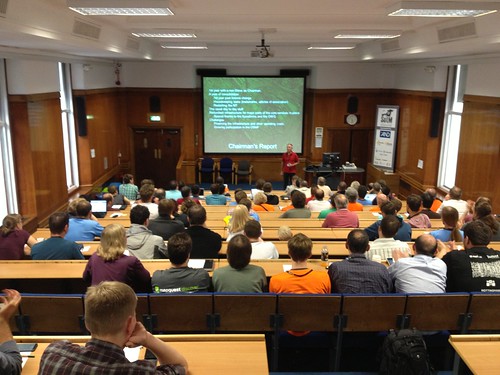At the upcoming Foundation annual general meeting we will be voting on a new set of articles. The articles are essentially the constitution of the organisation and should lay down the law for how we operate.
Why are we revising the articles this year?
It is not uncommon that over time rules imposed by an organisation’s articles start to be at odds with reality, in the case of the OSMF there have even been issues from the beginning. Given that OSM and with it the foundation have become far more visible and important, we can no longer afford to simply ignore the differences that exist between what is prescribed and what is our day to day practice.
The process that has lead to these new proposed articles has been 2-3 years in the making, and not all of the change requests that accumulated over this period have found their way in to this new text. For this reason we expect more changes at the 2014 general meeting. Further, some of the goals we had for the current changes have not been 100% met due to legal restraints. None the less I would strongly recommend that the general meeting accept the new articles, they are far better than what we currently have.
While I cannot relieve you from the task of actually reading the new legal language, I do want to point out the major changes to the current set of documents.
The new text makes a structural change in that it merges our previous two constitutional documents, the Memorandum of Association and the Articles of Association. We have not made any substantial changes to the objects of the foundation even though in discussion it has been suggested that we make them more specific to the OpenStreetMap project. On top of the merger the whole document has been reformatted and numbered to be in line with the requirements of the new 2006 companies act.
The main issue with the current articles is that they assume that all our members are members according to the UK companies act, this requires us to collect full names and postal addresses from all members and make them available to third parties on request. While there are ways to get around publishing the address, we still consider it problematic from a data privacy point of view that we cannot offer an alternative. The new proposal adds a “associate member” class that sidesteps the above issue.
Our original goal was to afford “associate members” exactly the same rights as normal members. This turned out to not be possible with respect to resolutions and special resolutions at the general meetings which remain reserved for the companies act members. In practical terms this means that the “associate members” will not be able to vote on changes of the articles and dissolution of the organisation, and a handful of other topics. The “associate members” will however be able to elect the board and vote on motions at the AGM. You remain free to choose between regular and associate membership. After adoption of the new articles we will be contacting all existing members for instructions with respect to their membership class.
The proposed text allows us to use electronic means for our correspondence with the members and does away with the need to be physically present at the general meeting location. It still assumes that we are using a conventional proxy assignment for our e-mail voting, we are exploring alternatives to this for the next revision.
During the public discussion early this year I touched on the issue of including an asset lock in the articles, there wasn’t very much feedback on the topic and for that reason we are postponing adding such text to the next revision.
The board was evenly split on the matter of voting corporate membership. As this tends to be a hotly debated topic in our membership too, we have decided that we split the vote on the articles in to a vote on the new text and a vote on a set of amendments that add voting rights for corporate “associate members”.
As the last important point, the current articles did not detail how a member could lose membership either by not paying the membership fees or by being expelled by the board. The new articles try to lay down a reasonable set of rules for this, in line with our current practice.
Again, while not perfect and with some remaining warts, the new articles are a big step forward. The board and myself strongly recommend accepting them at our upcoming meeting in Birmingham.
Simon Poole


 Today is your last chance to vote by email for this year’s foundation board elections. If you are a member of the OpenStreetMap Foundation, and you are not planning to vote at the annual general meeting in Birmingham this Saturday, then
Today is your last chance to vote by email for this year’s foundation board elections. If you are a member of the OpenStreetMap Foundation, and you are not planning to vote at the annual general meeting in Birmingham this Saturday, then 


